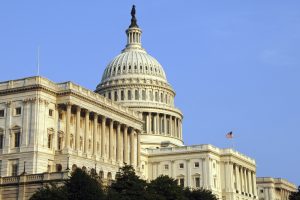 Progress on an additional federal coronavirus relief package seems to have stalled somewhat, dimming hopes that more federal relief for schools can be enacted before the new school year starts in many states. Also unaddressed is the fate of the expansion of federal coronavirus unemployment benefits that ran out over the weekend.
Progress on an additional federal coronavirus relief package seems to have stalled somewhat, dimming hopes that more federal relief for schools can be enacted before the new school year starts in many states. Also unaddressed is the fate of the expansion of federal coronavirus unemployment benefits that ran out over the weekend.
Although negotiations continue on Capitol Hill, key senators, including Sen. Mitch McConnell (R-KY), the Senate majority leader, appear not to have been a part of them. For now, the talks are said to be largely taking place between the White House and the leadership of the House of Representatives.
Democratic House Speaker Nancy Pelosi reportedly hosted the White House chief of staff, Mark Meadows, and the Treasury secretary, Steven Mnuchin, for closed-door meetings on Saturday. They were joined in further meetings today (Monday, 8/3) by Senate Minority leader Chuck Schumer (D-NY).
The GOP-controlled Senate had unveiled its version of a package early last week; however, the bill is not expected to garner any Democratic votes. And thus far, anyway, Senate Republicans have been unable to muster the 50 votes needed to pass their proposal, which they have dubbed the Health, Economic Assistance, Liability Protection and Schools (HEALS) Act.
That $1 trillion overall proposal includes $70 billion specifically for K-12 education; however, as we reported in an earlier blog post, the availability of two-thirds of this funding would be contingent on school districts developing a reopening plan that would need to be subsequently approved by their state’s governor. Plans that call for more than half of students to return for in-person instruction would be automatically approved. Plans with a smaller percentage of students returning for in-person instruction would receive funding on a proportionate basis. Compared with the earlier CARES Act, the proposal somewhat narrows the potential uses of these funds and it includes provisions that would ensure non-public schools would receive a greater share than under current law. The proposal would also provide significant liability protections for K-12 schools, among other employers, which would last for the duration of the pandemic.
Amid uncertainty about federal unemployment benefits rising, Congress is facing growing pressure to reach coronavirus relief deal before the national political conventions begin later this month. Both parties are likely to want the focus to be on their presidential candidates, not the unfinished business back in Washington.
